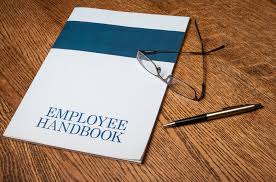Nearly all employers know that signing an employment contract is very important. However, not all of them realize that an Employment Handbook is actually more important.
Why?
The following is our analysis:
1) Content of Employment Handbook
Generally speaking, an employment contract is a standardized document, as it is should contain the following clauses:
(1) Both party’s names, residence of each party, and other salient information;
(2) Term and probation;
(3) Work Requirements/Job Description and location where work duties are to be performed;
(4) Work hours, rest and vacation/leave;
(5) Remuneration and Social Security;
(6) Labor protection and prevention of occupational harm.
All the above-mentioned matters have to follow PRC labor laws and regulations. Otherwise, the specification is invalid as it violates labor law. These issues are mandatory and are non-negotiable—the employer does not has any alternative when preparing employment contract, as these subjects must be included, according to Chinese Labor Law.
However, the Employment Handbook is different. It not only describes the enterprise’s culture, but also sets a specific standard of behavior for employees. In other words, it specifies what employees should do and what employees cannot do as an employee of the enterprise; it should also spell out the corresponding consequences for failure to comply with the requirements posted in the Employment Handbook. In this sense, it is a very important document to strengthen daily management of the enterprise.
2 ) Employment Handbook’s Function
A typical Employment Handbook could contain the enterprise’s management regulations, such as a statement of the enterprise’s culture and vision planning, among other things. Specific and detailed management regulations are very important for the smooth operation of the HR function and for the administrative management of the enterprise. For example, the basic requirements for employees, the recruitment procedure, probation period, leaves procedure, dissolution of labor contract, incentive system and discipline, confidential and proprietary information, code of ethical conduct, etc. The enterprise could specify every issue related to employee management in an Employment Handbook.
More importantly, the enterprise could specify clearly what kind of behavior is not allowed —what is forbidden. Any violation of these stipulations could lead to disciplinary consequences such as an oral or written warning, or even dismissal of the offending employee.
3. Procedure for an Effective Employment Handbook

Though the employer is the one who prepares the Employment Handbook, the employees’ involvement is also important for an Employment Handbook to be binding to the parties.
According to PRC Labor Contract Law, if any employer’s regulation/s pertains specifically and directly to the benefits of employees, such as remuneration, working hours, rest and vacation, work safety and health care, social insurance and welfare, training, work discipline or quota management, etc., the draft of such regulations shall be discussed at the employee congress or by all the employees, and shall be determined after consultation with the employer and its employees.
The employer shall publicize the Employment Handbook and make sure each employee understands the content once it is finalized.
Please note that it is very important for the employer to comply with procedural requirements in labor law. This principle also applies to enterprise regulations. Any above-mentioned regulations will not be authorized as effective if the employer fails to follow the procedural requirements as mandated by law. This is particularly important should there be a labor dispute wherein the enterprise cannot prove an employee’s involvement and/or awareness of the Employment Handbook. In such a case, the Employment Handbook would likely not be accepted by the Arbitration Committee (or court) to be binding upon the employee.
That is why we usually advise our clients to keep the minutes of discussion and consultation about the Employment Handbook and make sure each employee signs a statement that they clearly understand all the clauses in the Employment Handbook. Otherwise, it is possible that the employer will find they are in deep trouble someday.

